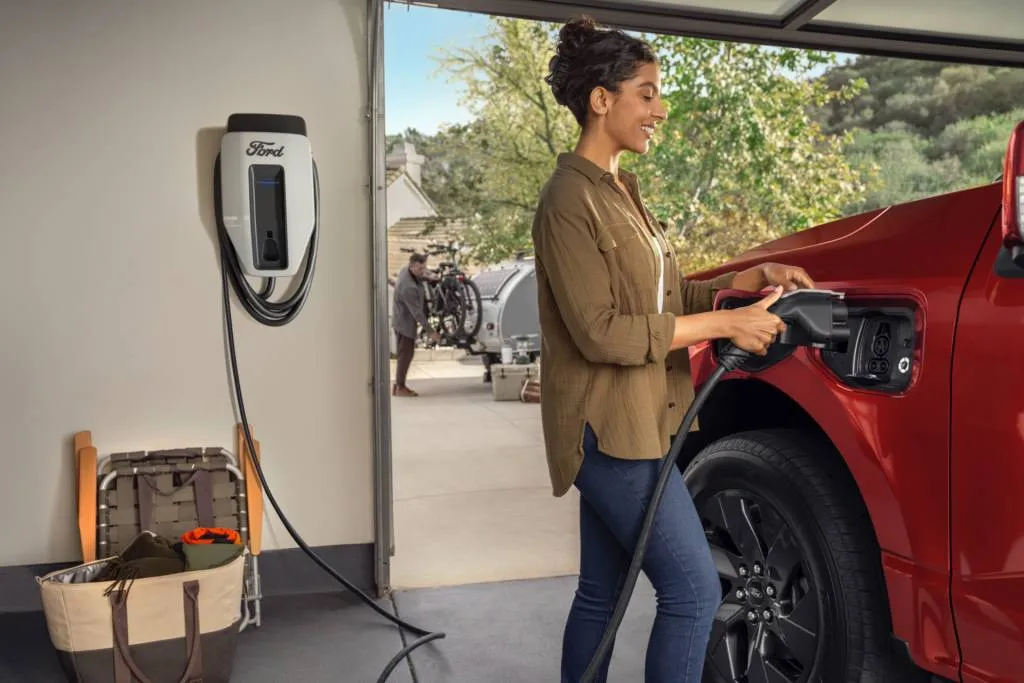A Ford F-150 Lightning electric pickup truck takes money and energy to operate, but Ford is now trying to show customers one way the truck can earn its keep while parked.
The automaker on Thursday announced a project in partnership with Residio Technologies to demonstrate how the Lightning’s vehicle-to-home (V2H) capability can be used for home energy management. The project will pair V2H with Residio smart thermostats to potentially save money on home electricity bills, maximize use of clean energy, and reduce strain on the grid, Ford said in a press release.
Ford and Residio V2H project
Ford already pitches the F-150 Lightning as an emergency home backup power source, as well as an effective way to team with home solar, functions that require $6,000 in supporting hardware. Ford and Residio are now aiming to use power from the truck’s battery pack to run home heating and cooling systems not just in emergencies, but at times of high demand on the grid through coordination between an EV and a smart thermostat.
Such coordination could minimize grid energy use during the most expensive hours, and perhaps make greater use of renewable energy when available, according to Ford. These concepts are just being studied rather than fully commercialized, however. Ford expects the project to be completed in the first half of 2024, after which perhaps we will get a further update.
V2H is just one potential function of EV bidirectional charging, which several automakers are now integrating into production vehicles. Kia is offering a range of features taking advantage of bidirectional charging with Wallbox, and General Motors is readying bidirectional home systems. Tesla models will get bidirectional capability by 2025, and the Cybertruck debuts a Powershare feature.

Ford and Residio V2H project
Another much-discussed use of bidirectional charging is vehicle-to-grid (V2G), which allows EVs to discharge power back into the grid during periods of high demand or absorb excess electricity when demand is lower, providing a more consistent level of overall electricity use. Unlike V2H, V2G requires active participation from utilities and, perhaps, more infrastructure. But a few products support it, including a charger from Fermata Energy for the Nissan Leaf.
A study released late last year projected based on anticipated market rates that using a V2G charger might earn $15,000 over 10 years, and that could be in addition to this smart V2H use.
Read the full article here



